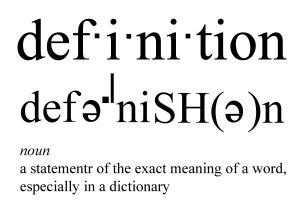Short Definition:
In business format franchising, a Franchise is a type of license that a party (franchisee) acquires to allow them to have access to a business’s (franchisor’s) proprietary knowledge, processes, and trademarks in order to allow the party to sell a product or provide a service under the business’s name.
Long Definition:
 In the context of franchising, a Franchise involves a contractual relationship where the franchisor grants the franchisee the right to operate a business under the franchisor’s brand and system. This includes not only using the franchisor’s trademarks, business models, and procedures but also receiving continuous support in the form of training, marketing, and operational guidance. In return, the franchisee pays initial franchise fees and ongoing royalties. This arrangement allows for the consistent replication of the franchisor’s success in multiple locations, thus expanding its brand footprint while offering entrepreneurs an opportunity to operate their own businesses under an established brand.
In the context of franchising, a Franchise involves a contractual relationship where the franchisor grants the franchisee the right to operate a business under the franchisor’s brand and system. This includes not only using the franchisor’s trademarks, business models, and procedures but also receiving continuous support in the form of training, marketing, and operational guidance. In return, the franchisee pays initial franchise fees and ongoing royalties. This arrangement allows for the consistent replication of the franchisor’s success in multiple locations, thus expanding its brand footprint while offering entrepreneurs an opportunity to operate their own businesses under an established brand.
Additional Definition: The FTC Franchise Rule defines a “franchise” as an arrangement whereby a franchisor grants franchisees the right to operate a business that: 1) is identified with the franchisor’s trademark; 2) is subject to the franchisor’s significant control and/or assistance; and 3) in exchange for which, the franchisee pays a “franchise fee” to the franchisor or its affiliate. Most state franchise laws adopt a similar definition (except in New York, where any combination of elements 1 and 3, or elements 2 and 3, are enough to satisfy the state law definition of “franchise”).
History and Usage:
The modern franchise business model has roots in the mid-19th century, but it surged in popularity in the 20th century with the rise of fast-food chains. One of the most notable early examples of franchising was Isaac Singer’s effort to distribute his sewing machines across the United States. Today, franchising spans numerous industries, including food service, retail, health care, and more, making it a significant engine of economic growth worldwide.
Learn more about franchising in The Educated Franchise – 3rd Edition
Five Questions often asked about ‘Franchising’:
Example of three, legally correct, sentences using the term – ‘Franchise’:
Summary:
Understanding the term ‘Franchise’ is crucial for both franchisors and franchisees as it encapsulates the legal, operational, and economic dynamics of franchising. It allows for the expansion of businesses and offers entrepreneurs a structured pathway to ownership under established brands, leveraging support systems that increase the likelihood of success. Understanding this term fully helps maintain clarity and alignment in the Franchise Relationship and Franchise Agreement, ensuring both parties achieve their business objectives.